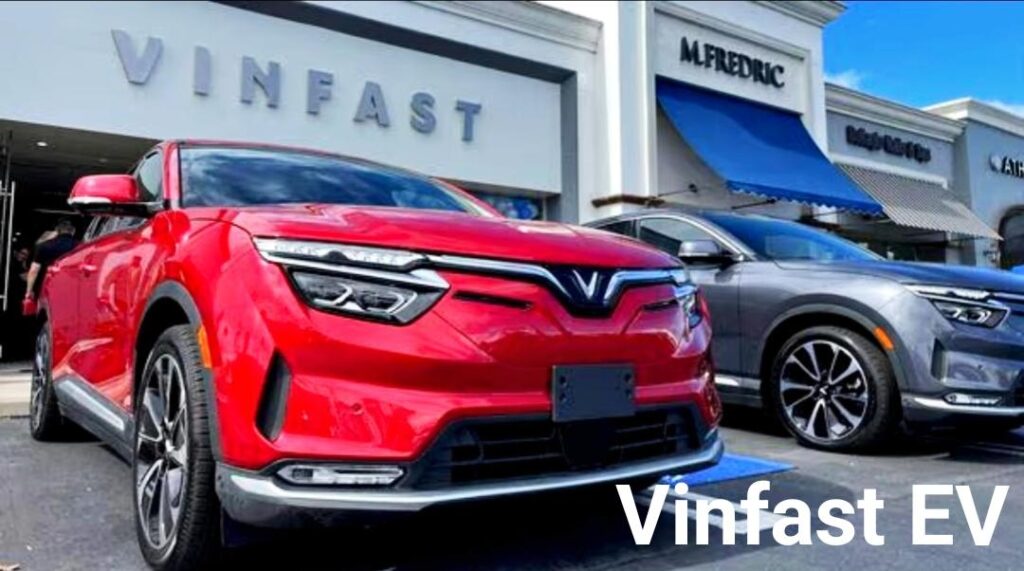The Indian automotive industry is accelerating its shift to electric vehicles (EVs), spurred by new government policies advocating for eco-friendly transportation. Industry stalwarts like Maruti Suzuki, Hyundai, Mahindra & Mahindra, and Tata Motors are gearing up to unveil an array of EV models. Concurrently, VinFast, a dynamic entrant, is setting its sights on the burgeoning Indian EV market.

VinFast Auto has embraced India’s recent EV policy reforms, announcing intentions to launch a versatile lineup of sustainable, premium SUVs at attractive price points. The firm has pledged a $500 million investment in India, which includes establishing an EV manufacturing hub in Tamil Nadu. This facility is projected to generate 3,500 jobs in the Tuticorin area and aims to produce 150,000 vehicles upon becoming operational.
In February, VinFast initiated the construction of its first integrated EV manufacturing site in Tamil Nadu, covering 400 acres within the State Industries Promotion Corporation of Tamil Nadu (SIPCOT) industrial complex. The company is also dedicated to fostering local economic development through localization strategies.
VinFast’s foray into the Indian Battery Electric Vehicle (BEV) sector is met with challenges outlined in a GlobalData report, citing the intense competition, dominance of entrenched players, and the frugality of Indian consumers. The Indian automotive market’s competitive nature is evidenced by the withdrawal of global powerhouses like General Motors and Ford after lengthy tenures. Similarly, Toyota and Volkswagen have faced hurdles in establishing a substantial market share.
VinFast’s debut in the BEV market will coincide with Tata Motors’ BEV portfolio expansion and Mahindra’s augmentation of its BEV lineup by the mid-2020s. Market leader Maruti Suzuki is poised to roll out its BEVs, starting with the eVX by 2025. These established companies benefit from a robust supplier network, which allows them to offer cost-effective BEVs, thereby heightening the rivalry for VinFast.
With its manufacturing unit slated for completion by 2026, VinFast’s market introduction will synchronize with the launch of BEVs by key players, presenting a mix of challenges and prospects within India’s swiftly transforming automotive sector.
Will VinFast Succeed in India?
Despite the distinctive hurdles of the Indian automotive market, VinFast’s triumph in India will depend on its market acumen. Cultivating a potent brand identity and distinguishing itself from rivals will be pivotal. As an emerging brand, VinFast must resonate with budget-conscious consumers who favor established global automobile brands.
Strategic positioning is essential to captivate customers in a market that values cost-effectiveness, dependability, and brand allegiance. VinFast’s value proposition needs to be persuasive enough to surmount the loyalty towards established brands. Introducing innovative features, competitive pricing, and a comprehensive after-sales service network will be indispensable for securing consumer trust.
Considering the competitive milieu and the imperative for vigorous brand-building endeavors, our sales forecasts for VinFast in India are modest. Assuming VinFast launches four BEV models—VF e34, VF 5, VF 6, and VF 3—GlobalData anticipates sales of 1,500 units in 2026, with a gradual increase to 3,300 units by 2036. The success of these models will hinge on their reception in the market, pricing strategies, and overall value proposition.
VinFast’s venture into the Indian BEV market represents a strategic gambit that will test its capacity to rival established local titans and navigate a multifaceted, cost-sensitive market.